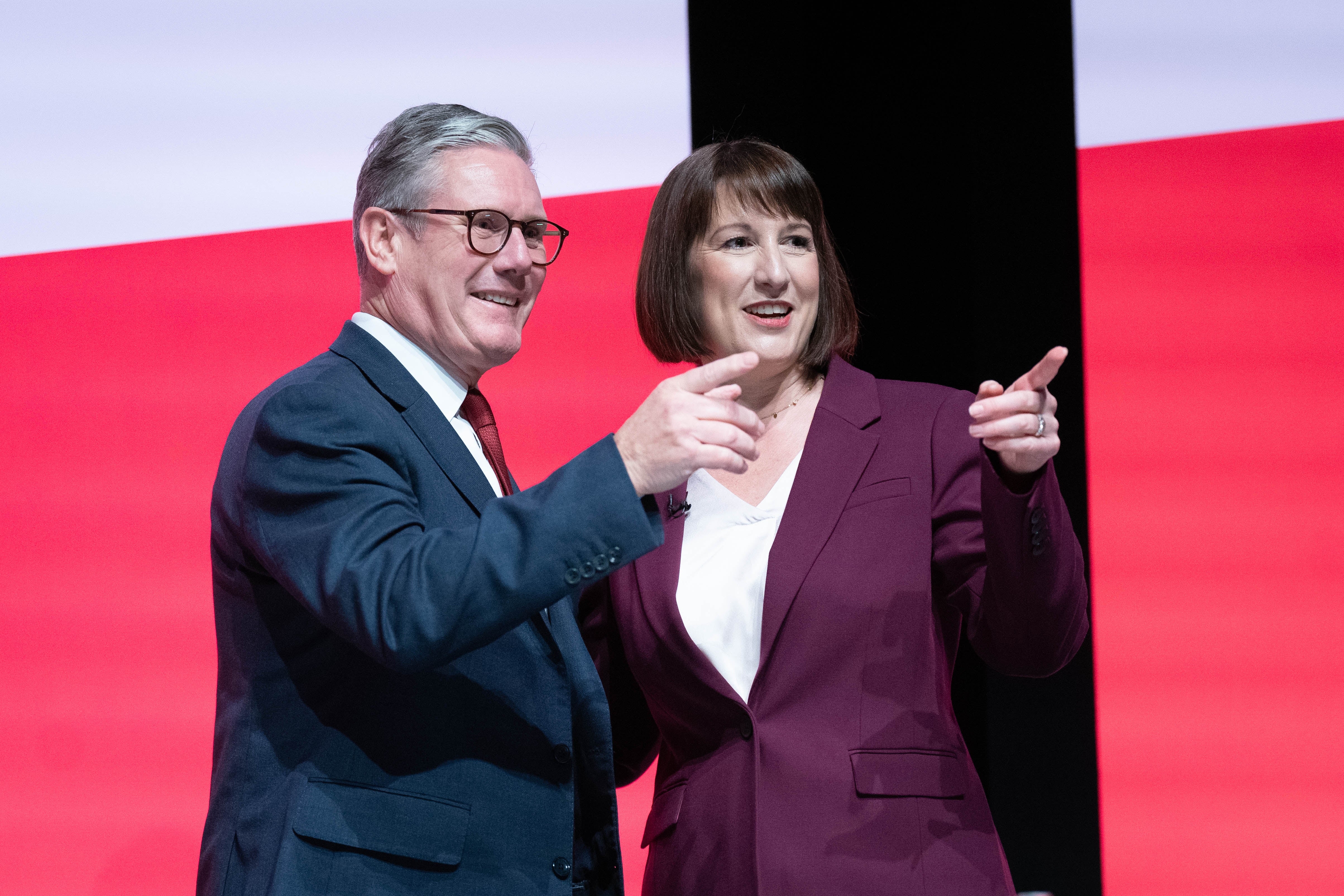Keir Starmer says stocks and shares owners ‘not working people’ in hint at capital gains hike
Chancellor Rachel Reeves is looking for around £40bn of tax hikes and spending cuts in her first Budget since entering the Treasury
Your support helps us to tell the story
From reproductive rights to climate change to Big Tech, The Independent is on the ground when the story is developing. Whether it's investigating the financials of Elon Musk's pro-Trump PAC or producing our latest documentary, 'The A Word', which shines a light on the American women fighting for reproductive rights, we know how important it is to parse out the facts from the messaging.
At such a critical moment in US history, we need reporters on the ground. Your donation allows us to keep sending journalists to speak to both sides of the story.
The Independent is trusted by Americans across the entire political spectrum. And unlike many other quality news outlets, we choose not to lock Americans out of our reporting and analysis with paywalls. We believe quality journalism should be available to everyone, paid for by those who can afford it.
Your support makes all the difference.Sir Keir Starmer has heightened expectations of a capital gains tax hike in next week’s Budget by describing "working people" as those whose income is not primarily from stocks and shares.
The prime minister all but confirmed he would raise taxes on wealth, saying that those whose main source of income is stocks, shares and property fall outside his definition of "working people".
He and Labour promised repeatedly during the general election campaign to not raise taxes on working people, and ministers have come under increasing pressure to define the term.
Sir Keir’s revelation on Thursday night gives the clearest indication yet of his thinking ahead of Rachel Reeves’ make-or-break Budget on Wednesday.
He was forced to backtrack after initially suggesting those with even relatively little income from stocks and shares were in line for tax hikes. But a spokesman for the PM quickly clarified that Sir Keir meant those for whom stocks, shares and property made up their primary income source.

Experts said Sir Keir’s comments made a capital gains hike in next week’s Budget all the more likely, with some warning it could undermine the government’s push for growth.
Tom Selby, director of public policy at investment giant AJ Bell, told The Independent: “The government’s commitment not to raise taxes on ‘working people’ was always going to come unstuck because the definition is potentially so broad.
“While raising the rate of capital gains tax will undoubtedly affect many working people and reduce the rewards for investing – potentially undermining the government’s wider ambition to drive economic growth – the chancellor will argue it is broadly wealthier people who will shoulder the burden.”

The Independent has previously reported on investors rushing to shield cash from any tax changes in the Budget by funnelling it into tax-free individual savings accounts (ISAs). Mr Selby said Sir Keir’s comments will make ISAs and pension pots more attractive vehicles for investors.
Capital gains is paid on the profit made when selling assets which have increased in value. Currently it is charged at between 20 and 28 per cent, depending what somebody is selling, with critics having long called for it to be brought in line with income tax rates. A 2020 report by the government’s independent Office of Tax Simplification recommended more closely aligning capital gains tax rates and income tax rates.
The potential increase in the levy is one of many measures being considered by Ms Reeves ahead of a Budget which is set to contain £40bn of tax cuts and spending hikes needed to plug a hole in the public finances and give a much-needed cash injection to the NHS.
Tax Justice executive director Robert Palmer told The Independent it is “good to see the PM suggest that people who primarily get their income from investments will see their taxes go up in the Budget”.
He added: “Our public services are on their knees and it’s only right that people with the broadest shoulders pay more to fix our country.
“At the moment income from stocks and assets is taxed at a much lower rate than income from work - this isn’t a fair or effective way of running our tax system."
But Chris Springett, tax partner at professional services and wealth management firm Evelyn Partners, warned that Sir Keir’s view of what constitutes “working people” was “slightly skewed”.
He said: “Small business owners, business partners and entrepreneur-investors tend to be very hard-working people who own shares privately in firms, while driving crucial parts of the UK economy and creating jobs by taking risks and investing their own money.
“Their earnings from both dividends and capital gains have been hit by sharp reductions in the annual exempt allowances in the last few years, and further tax hikes could be the final straw for many of them.”
And Will Stevens, head of financial planning at Killik & Co, told The Independent: “The comments made yesterday by the prime minister would place increasing emphasis on the likelihood of an increase in capital gains tax coming in the Budget next week.”
The PM’s comments came after Ms Reeves confirmed the Budget will also see her change the government’s rules around debt to free up around £50bn of debt-funded spending power.
The cost of government borrowing increased in response to the chancellor’s confirmation she would change debt rules to spend billions more on investments.
And Tory former chancellor Jeremy Hunt said increased borrowing could increase the cost of mortgages for hundreds of thousands of households.
But Panmure Liberum chief economist Simon French hit back, saying: "My conclusion is that the Gilt market is generally relaxed at the UK’s fiscal tweaks, but with a small uncertainty yield premium on fears that the looser stance of capital will slip into resource spending.
"Whilst the Shadow Chancellor is being a little bit disingenuous warning of Treasury advice which warns of higher interest rates ... there are kernels of valid concern in Hunt’s warning."
Meanwhile the latest data from Moneyfacts showed average two-year mortgage rates on Friday were just under 5.4 per cent, slightly lower than at the beginning of the week and this time last month.
Mortgage rates are also significantly lower than the near 6.4 per cent average on this day last year, in a boost to Ms Reeves.
A Treasury spokesman said: “We do not comment on speculation around tax changes outside of fiscal events.”

Join our commenting forum
Join thought-provoking conversations, follow other Independent readers and see their replies
Comments